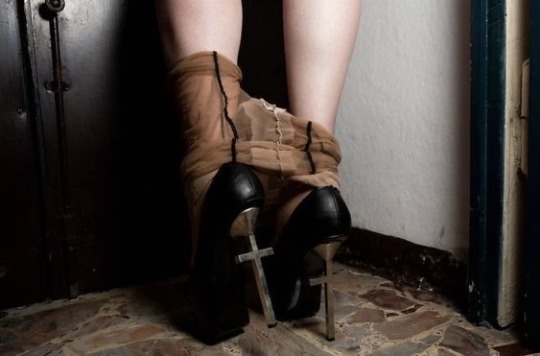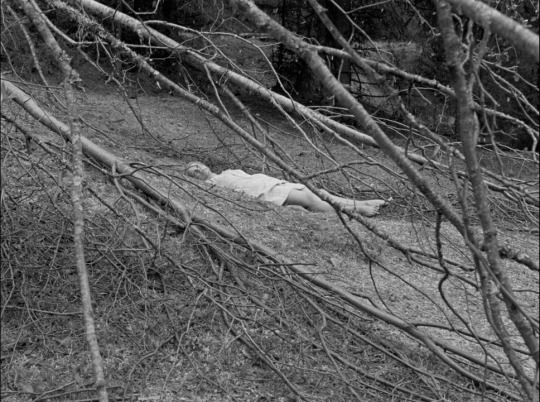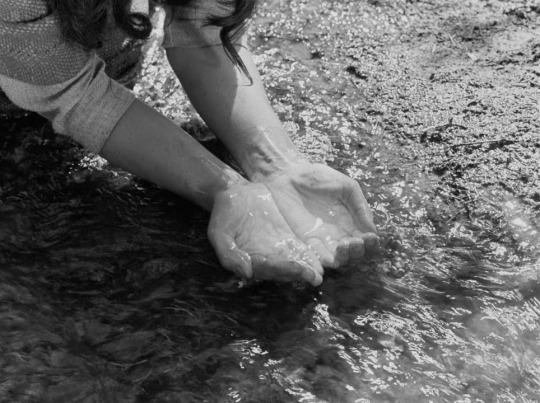#The Virgin Spring
Explore tagged Tumblr posts
Text









The Virgin Spring 1960 | dir. Ingmar Bergman
#the virgin spring#1960s#ingmar bergman#filmedit#filmgifs#moviegifs#classicfilmblr#uservita#userlenie#albertserra#uservienna#by charlie#ours#gifs
692 notes
·
View notes
Text

The Virgin Spring 1960 / Ingmar Bergman
178 notes
·
View notes
Text

†
#girlblogging#girlblogger#cinnamon girl#girly things#lana del rey#lux lisbon#the virgin spring#the virgin suicides#mama mary#vintage americana#retro americana#midwest princess#this is what makes us girls#midwestern gothic#tulsa jesus freak#lizzy grant#american jesus#appalachian#southern architecture#southern aesthetic#southern gothic aesthetic#southern gothic#appalachia#appalachain gothic#rural america#trashy aesthetic#pinterest girl#girl interrupted syndrome#ethel cain#religious trauma
2K notes
·
View notes
Text

Here's a Sigi to soothe the sting of god awful war movies, as promised. I think I will take some time to give this some nice colours and bg. (I never see my characters again unless I tag their names and ranks so going back to doing that).
The hilt of Siegfried's sword, Nibelung, is inspired by the hilt of the dagger from The Virgin Spring, one of my favorite films.

#wwi#ww1 fiction#ottoway#german#ww1#moth#original comic#my art#Sigi#Siegfried Isenstein#Major Isenstein#the virgin spring
23 notes
·
View notes
Text


Michael Haneke - Lemmings, Part I: Arcadia (1979)
#film#michael haneke#lemmings#arcadia#lemminge#arkadien#ingmar bergman#the virgin spring#jungfrukällan#1979#1960
20 notes
·
View notes
Text


The Virgin Spring (Ingmar Bergman, 1960)
10 notes
·
View notes
Text




The Virgin Spring (1960, Ingmar Bergman)
168 notes
·
View notes
Text














A day can start out beautifully but end in misery. So rarely have I seen a morning so full of promises as today. The sun shown in all its fairness made you forget the winter's rage. My legs wanted to dance for joy, but before nightfall she lay dead. I saw the May Queen herself ride into the sun, but she never returned.
THE VIRGIN SPRING (dir. IGMAR BERGMAN, 1960)
#number one movie in which max von sydow thows a child into a shelf!!#perhaps I watched this movie too early in the morning#the virgin spring
5 notes
·
View notes
Photo










THE VIRGIN SPRING (1960) dir. Ingmar Bergman
At the very moment you think you're doomed, a hand shall grasp you and an arm circle around you, and you will be taken far away...where evil no longer has power over you.
#ingmar bergman#the virgin spring#the virgin spring 1960#filmedit#film#moviegifs#cinema#cinemapix#worldcinemaedit#editsm#gifsm
107 notes
·
View notes
Text










MAX VON SYDOW IN THE VIRGIN SPRING (1960)
#max von sydow#Birgitta Pettersson#the virgin spring#Jungfrukällan#Töres döttrar i Wänge#and make the latter half of the film so fucking cathartic#the father and daughter scenes at the start of this film are so sweet#filmedit#classicfilmedit
50 notes
·
View notes
Text

The Virgin Spring - Ingmar Bergman
2 notes
·
View notes
Text




The Virgin Spring, Bergman (1960) /// Northwest Passage, Lynch (1990)
9 notes
·
View notes
Text
THE VIRGIN SPRING (1960)

This takes place in old-timey Sweden. There are still pagans! So we’re talking early medieval. Tore (Max von Sydow) and his wife Mareta are minor lords with a little homestead and a few servants, including Ingeri, who is a pagan and also pregnant. Their daughter is Karin, a vivacious and flirtatious young woman. Karin is sent to deliver some candles to the nearby church, and she demands to wear her finest clothes. She takes Ingeri with her.
There is drama between the two women. Karin danced with Ingeri’s baby-daddy the night before, and there’s some other stuff too. They cross a little stream by an old water mill and enter a forest, but Ingeri freaks out and refuses to continue. She stays with the old guy running the water mill. He seems to be Odin! He molests Ingeri and she runs after Karin.
Karin, meanwhile, has been spotted by a trio of brothers (two adult and one boy) who are tending to their goats. They entice Karin into eating a meal with them. She is naturally friendly and funny, sharing all of her food and drink with them, but she eventually realizes that she is in danger. Karin tries to escape but the two older brothers catch her and sexually assault her. Afterwards, Karin stands up and walks away, but one of the brothers bashes her on the head with a branch and she dies. They strip off her fancy clothes and run away. Ingeri caught up and watched the entire scene. She continues to watch as the youngest brother tries to eat some more food, but he retches. He tosses some dirt on Karin and runs after his brothers.

We cut back to Tore and Mareta’s homestead, where the three brothers are asking to spend the night to avoid the cold! Tore lets the men stay in the great hall, and everyone shares an awkward meal. The youngest brother can’t eat anything without spitting it up. Everyone goes to bed. Tore and Mareta are freaking out because Karin hasn’t come home yet. Mareta goes to check on the youngest brother, and the older one offers to sell her Karin’s dress, which is naturally recognizes! She takes the dress to Tore, who takes out his sword.
Tore is heading to the great hall when he finds Ingeri, who has returned and is trying to hide. She confirms that the men killed Karin, and she confesses that she feels guilty because while she was watching she willed it to happen. She helps Tore prepare for the upcoming vengeance. Tore and Mareta quietly enter the great hall. Tore goes through the brothers’ bags and finds the rest of Karin’s clothes. He sits and waits for the morning.
A rooster crows and he wakes up the brothers. The brothers try to fight back, but he stabs one of them, and he holds the other down atop the fire. Mareta tries to protect the youngest brother, but Tore grabs him and throws him against the wall and kills him, too. The entire household then leaves to find Karin’s body. Ingeri leads them to it. Tore says that he doesn’t understand god, but he still asks for forgiveness. He vows to build a church on the very spot where Karin died. He and Mareta pick up the body, and water begins to spring from where the head rested. Everyone is amazed.

Is this really a horror movie? Probably not, it’s mostly drama, a tale about righteous parental vengeance, but it uses elements of horror to tell the story. (The story is also based on a very old folk tale, so it might also be folk horror.) The acting is superb, and the tension builds ominously when the brothers arrive at Tore and Mareta’s home. The extended, Christian, ending is a tone shift, but the original source is literally about the building of a particular little church, so I guess it was unavoidable. Numerous later movies are either a direct homage to this (“The Last House on the Left” (1972) and “The Last House on the Left” (2009)) or follow in the same trope of revenge (ex. “I Spit on Your Grave” (1978) and “I Spit on Your Grave” (2010)). This is a great movie, a meditation on the transition between different belief systems. Tore goes pagan on his daughter’s killers, but I’ll note that his more devout Christian wife didn’t raise a peep when her husband killed the men.
#the virgin spring#horror movie#movie review#1960#max von sydow#the best#swedish#folk horror#ingmar bergman
3 notes
·
View notes
Text










9 notes
·
View notes
Text
My roommate thinks hes screwing me out of something when he trades my criterions for his non criterions. No really, I will take "hot dummy fails his knight's quest" over "not another daddy's rape revenge fantasy" idc that its black and white and some crusty group said its cooler than mine.
#the green knight#the virgin spring#in general Im cured of my ridiculous obsession with Ingmar Bergman
4 notes
·
View notes
